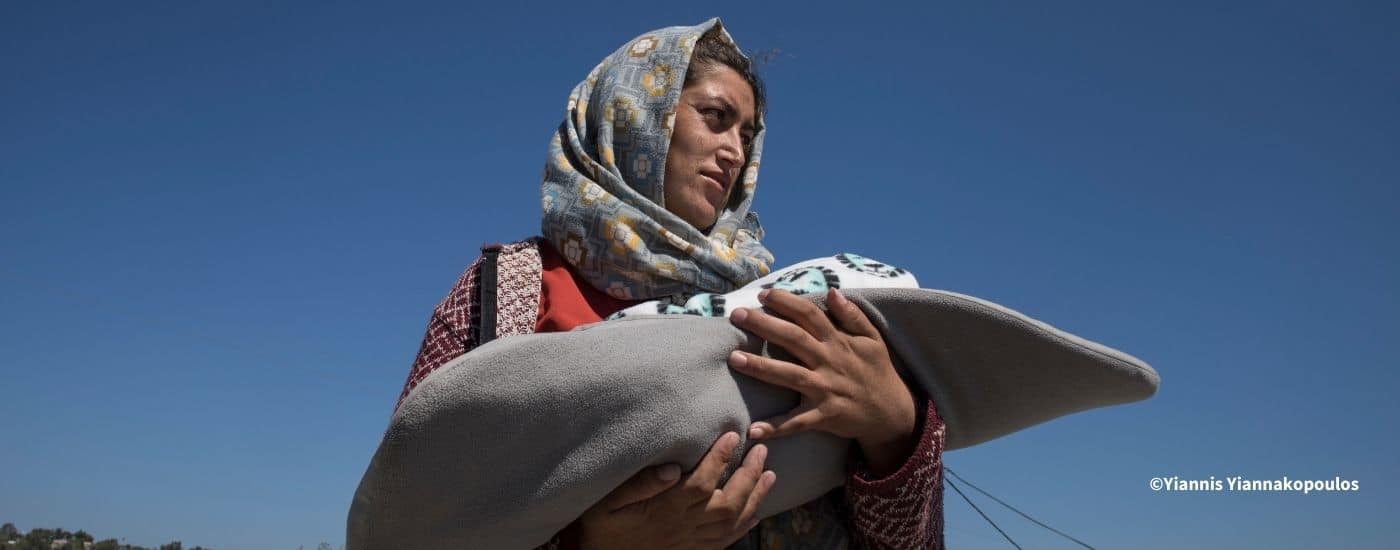Born in exile
Published 27th November 2020
Doctors of the World (DOTW) is delivering vital medical care and humanitarian aid on the Greek island of Lesvos, where thousands of vulnerable men, women, and children live in refugee camps. Earlier this month, our team was called to a medical emergency…
There were dramatic scenes on Lesvos as a woman started going into labour in the new refugee camp built in the wake of September’s wildfires.
The medical facilities in the camp are far from sophisticated but as the umbilical cord was wrapped around the baby, there was no time to wait for an ambulance to take the mother to the hospital.
Fortunately, our highly trained and experienced medical staff were on hand, and gynaecologist Erminia Dalakli (pictured) leapt into action, helping the mother safely deliver this beautiful baby girl.
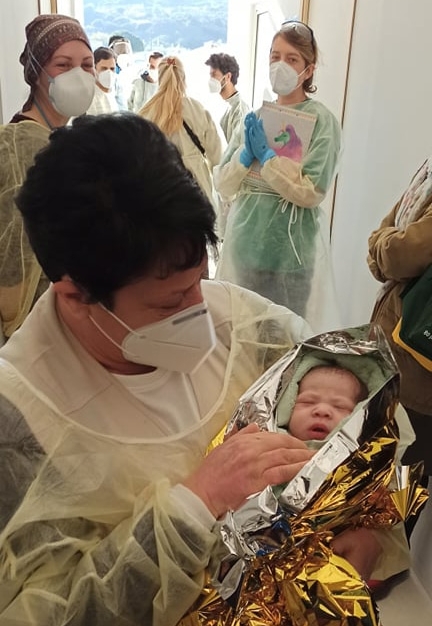
Erminia explained she didn’t have a minute to waste when the baby was about to make her entrance: “The mother’s dilation was perfect. We called an ambulance from the National Center for Emergency Assistance in order for her to be transferred to the hospital, but I had noticed that there were many umbilical cord wraps, so she had to give birth right there.
“But it was OK, I have delivered many babies before.”
The baby was born weighing a healthy 3100 grams, with a shock of dark hair and rosebud lips. She doesn’t have a name yet, but she has no shortage of admirers.
Europe’s shame
It is an absolute tragedy and a disgrace that any child should be born in a refugee camp in Europe. But thankfully our expert staff were able to ensure the safe delivery of this little girl and make the best of what is a terrible situation.
The inevitable sense of hope and happiness that comes with new life has spread throughout the camp. Help us continue to ensure life-saving medical care is available for mothers in need by donating now.
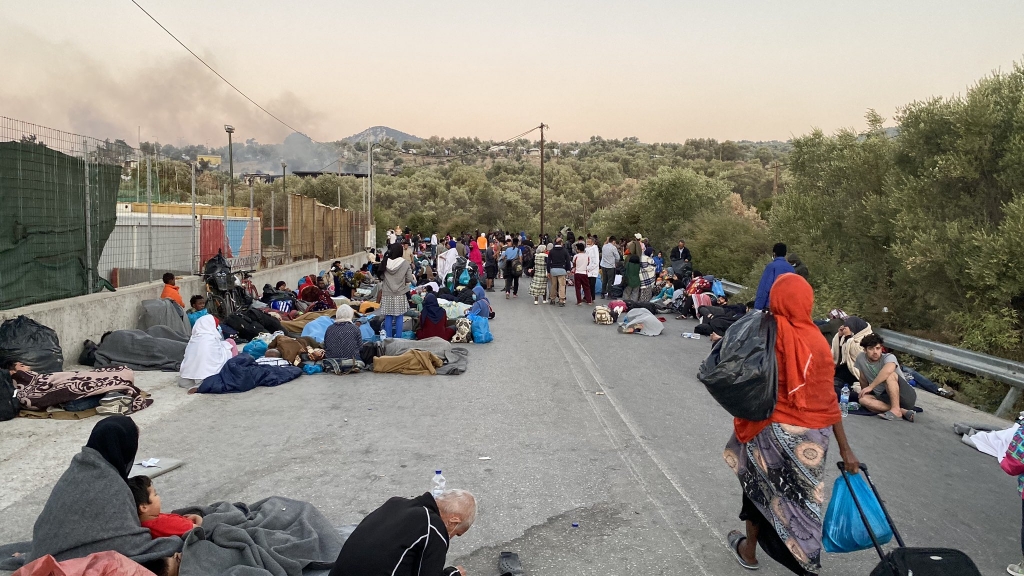
It’s been 10 weeks since Moria refugee camp burned to the ground and more than 12,000 men, women and children were left homeless.
The Greek authorities have responded by building another camp, with the capacity to hold over 10,000 people, at a former military shooting range on the island, once again giving Lesvos the unenviable title of hosting Europe’s largest refugee camp.
The camp may be new but the situation facing the thousands of migrants and refugees trapped on the island remains desperate.
They continue to live in cramped and overcrowded conditions with unreliable electricity and water supply, poor access to healthcare and the threat COVID-19 ever present, as cases spike countrywide
How we’re responding
DOTW has been working on Lesvos since 2014 and was one of the first NGOs to enter the new camp, working quickly to screen for COVID-19, perform urgent health assessments, and refer the most complicated cases to health services on the island.
However, the local health system has its own limitations exacerbated by Greece’s socioeconomic crisis and Europe’s reception crisis. As well as being responsible for meeting the health needs of 3000 people spread across two residential zones in the new camp, we’re also providing staff and support to the Ministry of Health.
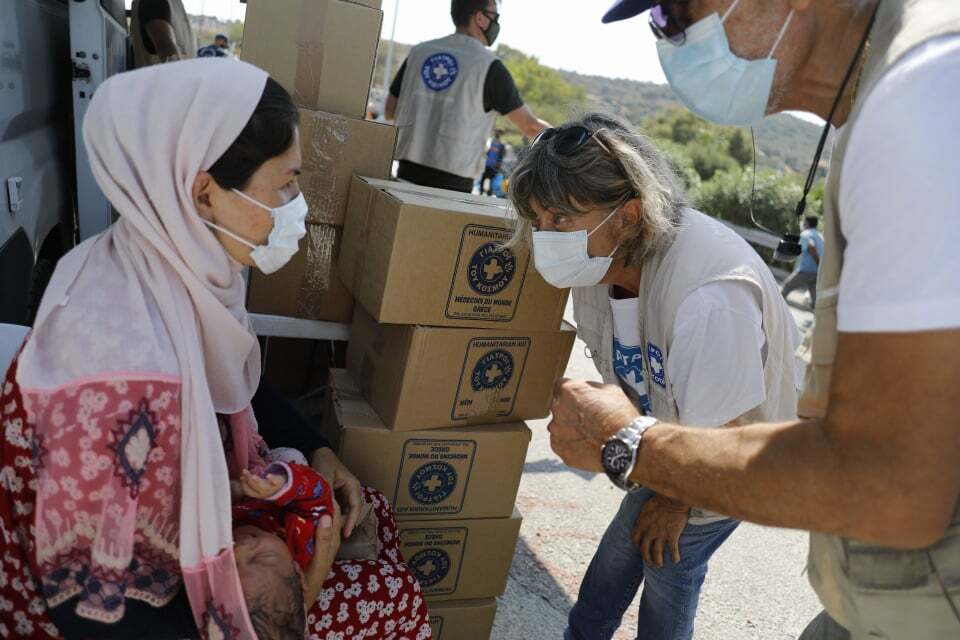
DOTW’s team on the ground provides a range of primary health services, including medical screening and diagnosis, sexual and reproductive healthcare, and distributing medication to people with chronic illnesses.
Between September 28 and November 8, we helped 1,649 people, including 384 children. Also distributed 5,000 hygiene kits and COVID-19 protection equipment.
Thanks to you
We raised an incredible £21,344 through our recent emergency appeal for Moria. This money will ensure our expert staff can continue to respond to the situation on the ground and deliver life-saving medical care seven days a week.
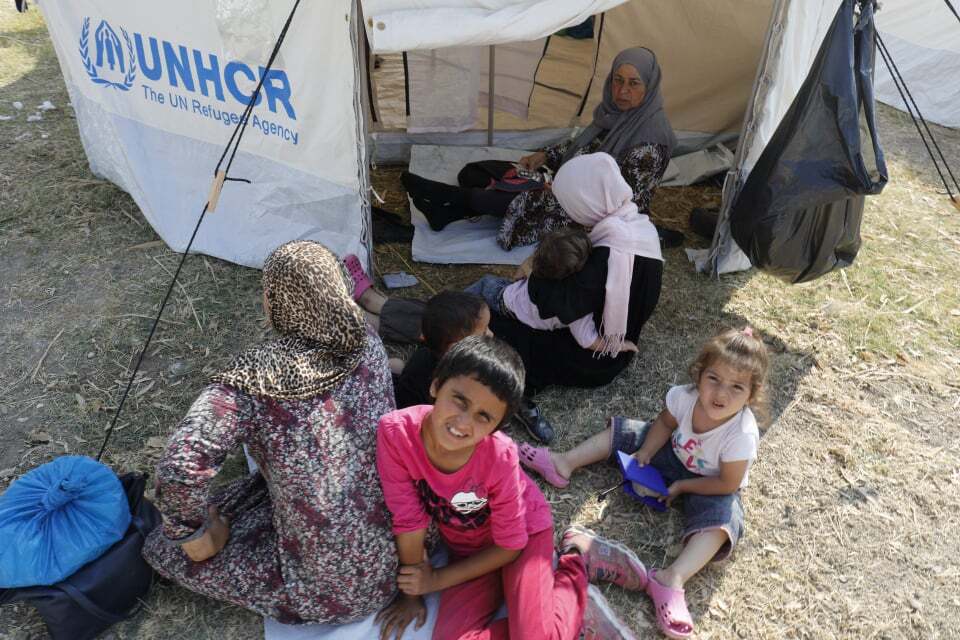
It’s not too late to support our work with refugees in Greece, the UK and around the world.
Just £15 could provide a family with an emergency hygiene kit, while a regular gift will help us better plan for the future, which is so important in these challenging times.
Going forward, our team on Lesvos will be focused on strengthening the resilience of the most vulnerable asylum seekers and refugees and offering a comprehensive package of primary health care services.
